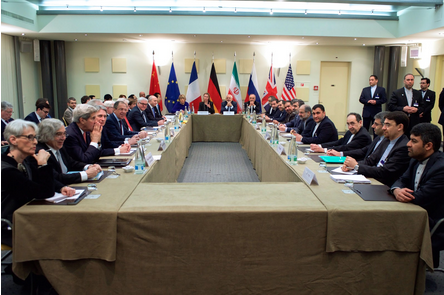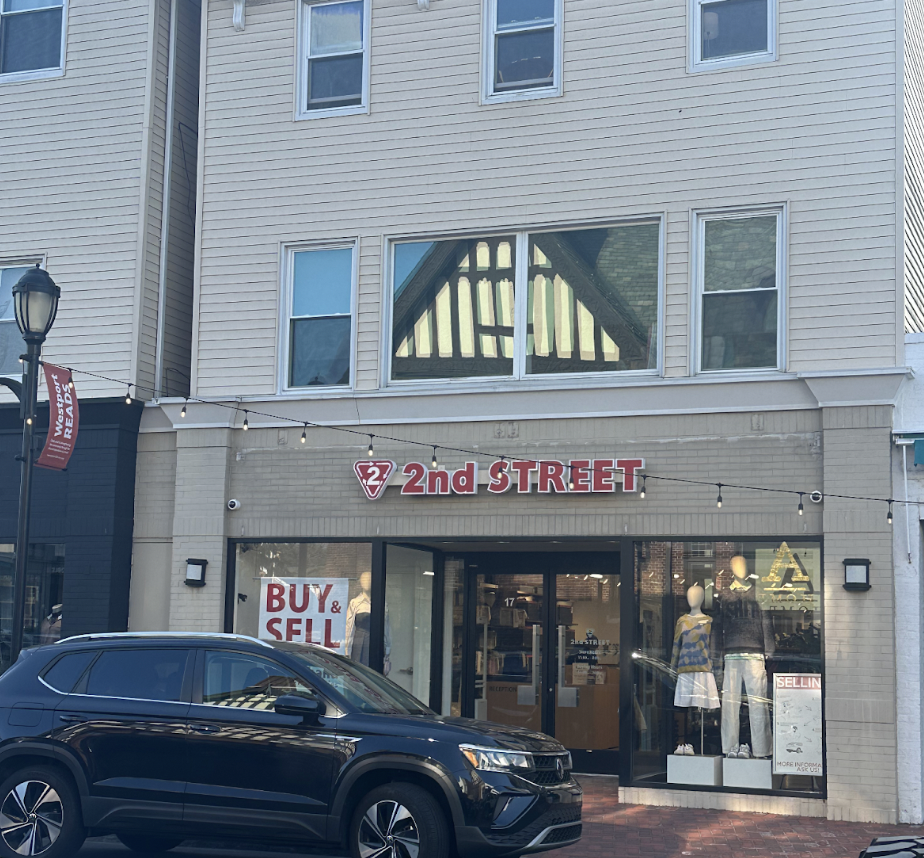Let’s make this (nu)-clear

Secretary Kerry and other American officials discuss the framework of the deal with Iran.
I’ll admit it: politically astute as I am, I’m a little tardy to the party on the issue of the Iran nuclear deal. Yet, given that weapons of mass destruction and the Middle East (the pressure cooker of the world) are involved and the final deadline for a finalized agreement is at the end of the next month, I think it’d be an okay idea to throw out my opinion.
But first, background: a few years ago, Iran got dangerously close to becoming nuclear-capable. As you can imagine, it’s probably not the brightest idea for a notably aggressive Shiite state to stock up on nukes in a region where massacres and crimes against humanity have become an hourly occurrence. Which is why America and its buddies slammed Iran with sanctions and embargoes that have clobbered its economy and standing in oil trade. Needless to say, that was more than enough to bring Tehran to the table.
President Obama has since helped to craft an agreement that says the sanctions will be lifted so long as Iran agrees to halt its nuclear program. Any nuclear facilities deemed “suspicious” will be inspected and, if anything eyebrow-raising is found, Iran will face harsh penalties.
Now, like many things churned out by the Obama administration, I think it’s extremely well-intentioned but somewhat half-baked in a manner that leaves me honestly with more questions than criticisms.
First off, did you notice the problem about two paragraphs ago? The agreement at the moment says Iran will be held accountable by the IAEA if any of its facilities are deemed suspicious. But by who? What qualifies as “suspicious”? Who is going to scope out for these suspicious nuclear programs without coming off as intrusive and creating more problems? Is it us? Will it be a legitimately strong designated multilateral group?
Say we do somehow fish and find something wrong: can we expect Iran (who has just been good ol’ Candid Chris these past few decades when it comes to its nuclear endeavors) to just tell us what’s going on or to just let us probe even further with inspections it views as invasive?
Most important of all, what do Iran’s neighbors, some of whom are our valuable allies in an area where friendship with the West runs thin, think of all these lurking uncertainties? Israel isn’t going to be happy when they see we’ve officially cut such an open-ended deal with its longtime adversary. Same goes absolutely for the Sunni Saudi Arabia who also has to contend with Iran on the oil-trading field as soon as the former is unshackled from sanctions.
Making peace with Iran should not mean sowing even more instabilities in the region.
A deal with Iran would be excellent (I’m not a fan of nuclear annihilation). It just needs to be firmed up in a limited window of time. If we’re to achieve a measure of peace with Iran and security with its nuclear potential, it has to be concrete; there’s no room for holes regarding inspection criteria and we certainly can’t rely on the honor system (as much as I’d like that). Let’s cement things. Let’s keep it candid and real.
Let’s make things, forgive me for this, (nu)-clear. And let’s do it by June 30th.















































